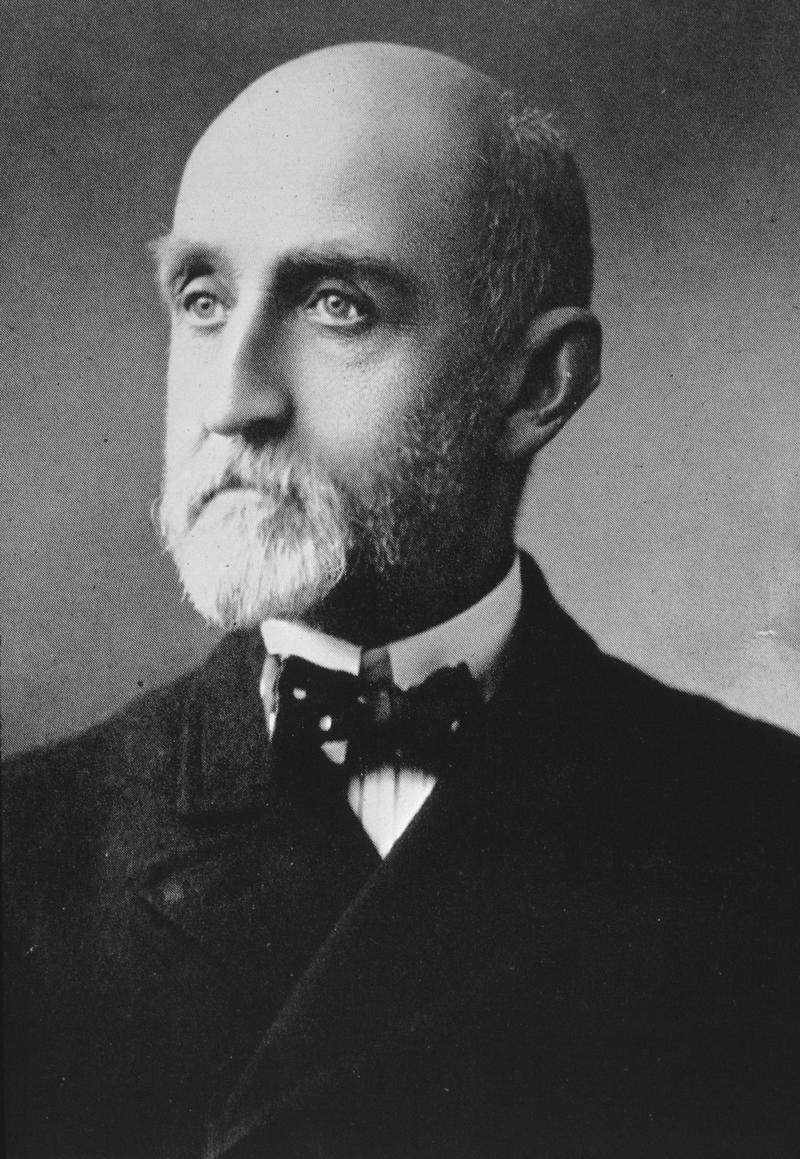Alfred Thayer Mahan
 Alfred Thayer Mahan
Alfred Thayer Mahan (; September 27, 1840 – December 1, 1914) was a
United States naval officer and
historian, whom
John Keegan called "the most important American strategist of the nineteenth century." His 1890 book ''
The Influence of Sea Power Upon History, 1660–1783'' won immediate recognition, especially in Europe, and with the publication of its 1892 successor, ''
The Influence of Sea Power Upon the French Revolution and Empire, 1793–1812'', he affirmed his status as a globally-known and regarded military strategist, historian, and theorist. Mahan's works encouraged the development of large
capital ships — eventually leading to
dreadnought battleships — as he was an advocate of the 'decisive battle' and of
naval blockades. Critics, however, charged him with failing to adequately explain the rise of largely land-based empires, such as the
German or
Ottoman Empires, though Mahan did accurately predict both empires' defeats in
World War I. Mahan directly influenced the dominant
interwar period and
World War II-era Japanese naval doctrine of the , and he became a "
household name" in Germany. He also promoted American control over
Hawaii though he was "lukewarm" in regards to
American imperialism in general. Four U.S. Navy ships have borne
his name, as well as various buildings and roads; and his works are still read, discussed, and debated in military, historical, and scholarly circles.
Provided by Wikipedia
 Alfred Thayer Mahan (; September 27, 1840 – December 1, 1914) was a United States naval officer and historian, whom John Keegan called "the most important American strategist of the nineteenth century." His 1890 book ''The Influence of Sea Power Upon History, 1660–1783'' won immediate recognition, especially in Europe, and with the publication of its 1892 successor, ''The Influence of Sea Power Upon the French Revolution and Empire, 1793–1812'', he affirmed his status as a globally-known and regarded military strategist, historian, and theorist. Mahan's works encouraged the development of large capital ships — eventually leading to dreadnought battleships — as he was an advocate of the 'decisive battle' and of naval blockades. Critics, however, charged him with failing to adequately explain the rise of largely land-based empires, such as the German or Ottoman Empires, though Mahan did accurately predict both empires' defeats in World War I. Mahan directly influenced the dominant interwar period and World War II-era Japanese naval doctrine of the , and he became a "household name" in Germany. He also promoted American control over Hawaii though he was "lukewarm" in regards to American imperialism in general. Four U.S. Navy ships have borne his name, as well as various buildings and roads; and his works are still read, discussed, and debated in military, historical, and scholarly circles.
Provided by Wikipedia
Alfred Thayer Mahan (; September 27, 1840 – December 1, 1914) was a United States naval officer and historian, whom John Keegan called "the most important American strategist of the nineteenth century." His 1890 book ''The Influence of Sea Power Upon History, 1660–1783'' won immediate recognition, especially in Europe, and with the publication of its 1892 successor, ''The Influence of Sea Power Upon the French Revolution and Empire, 1793–1812'', he affirmed his status as a globally-known and regarded military strategist, historian, and theorist. Mahan's works encouraged the development of large capital ships — eventually leading to dreadnought battleships — as he was an advocate of the 'decisive battle' and of naval blockades. Critics, however, charged him with failing to adequately explain the rise of largely land-based empires, such as the German or Ottoman Empires, though Mahan did accurately predict both empires' defeats in World War I. Mahan directly influenced the dominant interwar period and World War II-era Japanese naval doctrine of the , and he became a "household name" in Germany. He also promoted American control over Hawaii though he was "lukewarm" in regards to American imperialism in general. Four U.S. Navy ships have borne his name, as well as various buildings and roads; and his works are still read, discussed, and debated in military, historical, and scholarly circles.
Provided by Wikipedia